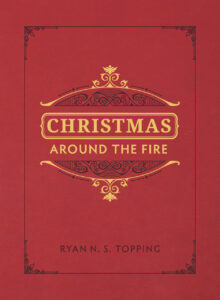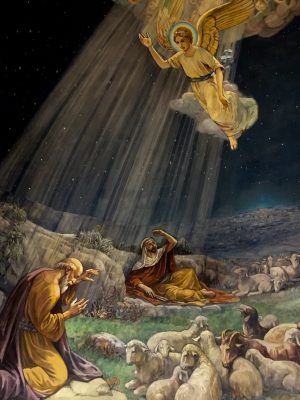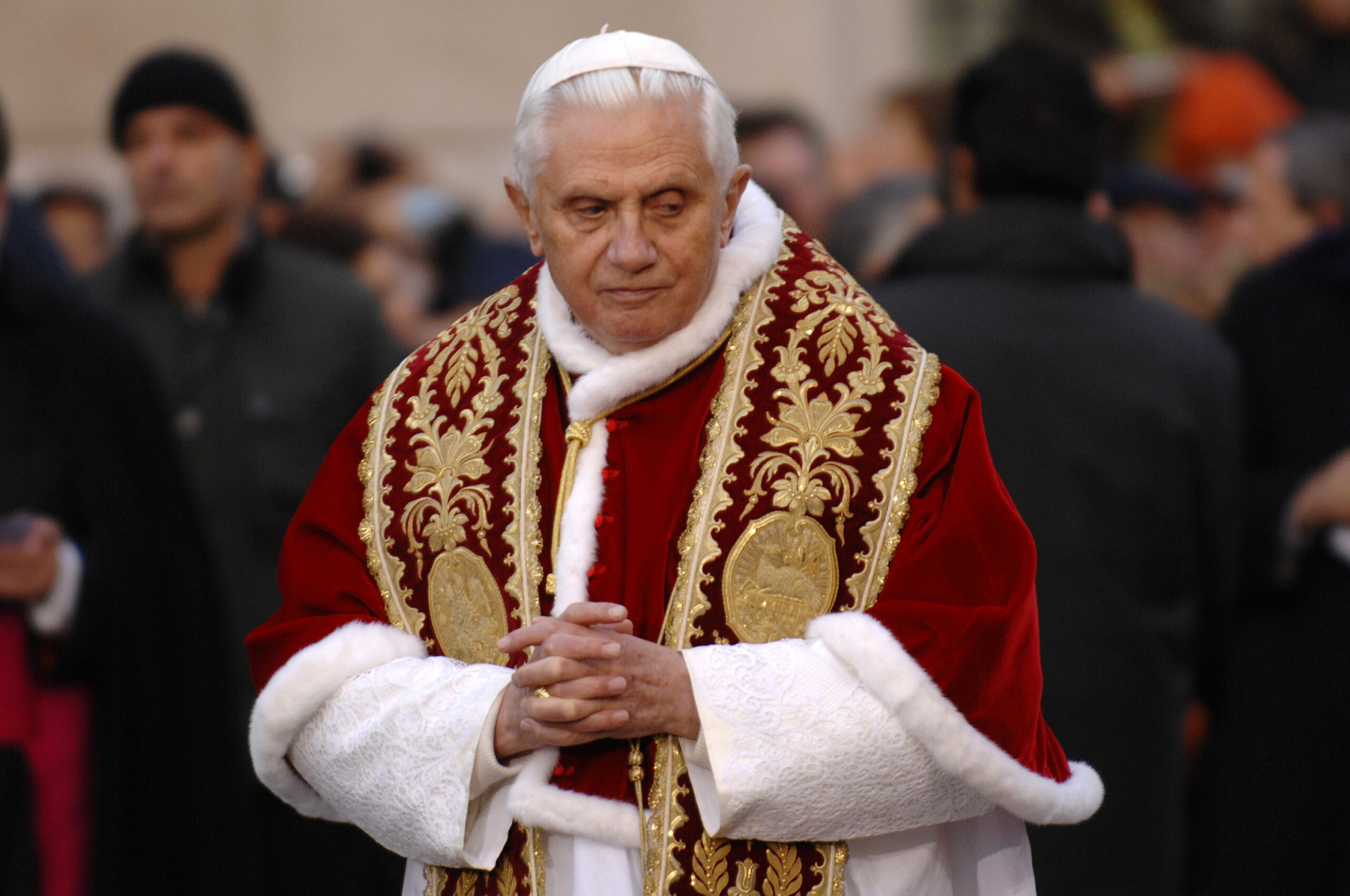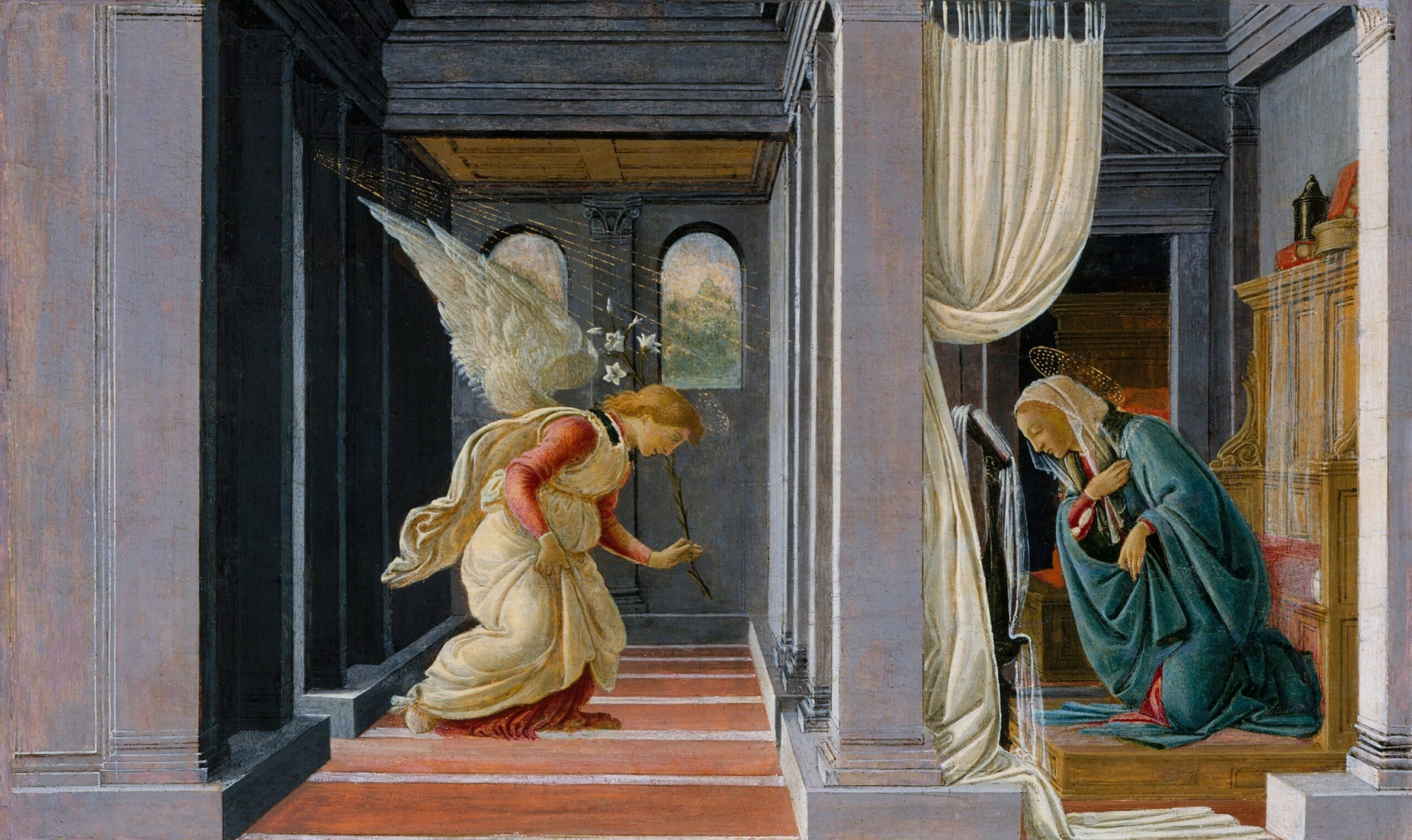Pope Benedict XVI continues his previous discourse on silence by focusing on the importance of expectation.
Another fundamental element of Advent is expectation, an expectation which is at the same time hope. Advent impels us to understand the meaning of time and of history as a kairós, as a favourable opportunity for our salvation. Jesus illustrated this mysterious reality in many parables: in the story of the servants sent to await the return of their master; in the parable of the virgins who await the bridegroom; and in those of the sower and of the harvest. In their lives human beings are constantly waiting: when they are children they want to grow up, as adults they are striving for fulfilment and success and, as they advance in age, they look forward to the rest they deserve. However, the time comes when they find they have hoped too little if, over and above their profession or social position, there is nothing left to hope for. Hope marks humanity’s journey but for Christians it is enlivened by a certainty: the Lord is present in the passage of our lives, he accompanies us and will one day also dry our tears. One day, not far off, everything will find its fulfilment in the Kingdom of God, a Kingdom of justice and peace.
However there are many different ways of waiting. If time is not filled by a present endowed with meaning, expectation risks becoming unbearable; if one expects something but at a given moment there is nothing, in other words if the present remains empty, every instant that passes appears extremely long and waiting becomes too heavy a burden because the future remains completely uncertain. On the other hand, when time is endowed with meaning and at every instant we perceive something specific and worthwhile, it is then that the joy of expectation makes the present more precious. Dear brothers and sisters, let us experience intensely the present in which we already receive the gifts of the Lord, let us live it focused on the future, a future charged with hope. In this manner Christian Advent becomes an opportunity to reawaken within ourselves the true meaning of waiting, returning to the heart of our faith which is the mystery of Christ, the Messiah who was expected for long centuries and was born in poverty, in Bethlehem.
In coming among us, he brought us and continues to offer us the gift of his love and his salvation. Present among us, he speaks to us in many ways: in Sacred Scripture, in the liturgical year, in the saints, in the events of daily life, in the whole of the creation whose aspect changes according to whether Christ is behind it or whether he is obscured by the fog of an uncertain origin and an uncertain future. We in turn may speak to him, presenting to him the suffering that afflicts us, our impatience, the questions that well up in our hearts. We may be sure that he always listens to us! And if Jesus is present, there is no longer any time that lacks meaning or is empty. If he is present, we may continue to hope, even when others can no longer assure us of any support, even when the present becomes trying.
Dear friends, Advent is the season of the presence and expectation of the eternal. For this very reason, it is in a particular way a period of joy, an interiorized joy that no suffering can diminish. It is joy in the fact that God made himself a Child. This joy, invisibly present within us, encourages us to journey on with confidence. A model and support of this deep joy is the Virgin Mary, through whom we were given the Infant Jesus. May she, a faithful disciple of her Son, obtain for us the grace of living this liturgical season alert and hardworking, while we wait. Amen!
This article is taken from a chapter in Christmas Around the Fire: Stories, Essays, & Poems for the Season of Christ’s Birth by Ryan N. S. Topping which is available from TAN Books. Original source is copyright © Libreria Editrice Vaticana.








